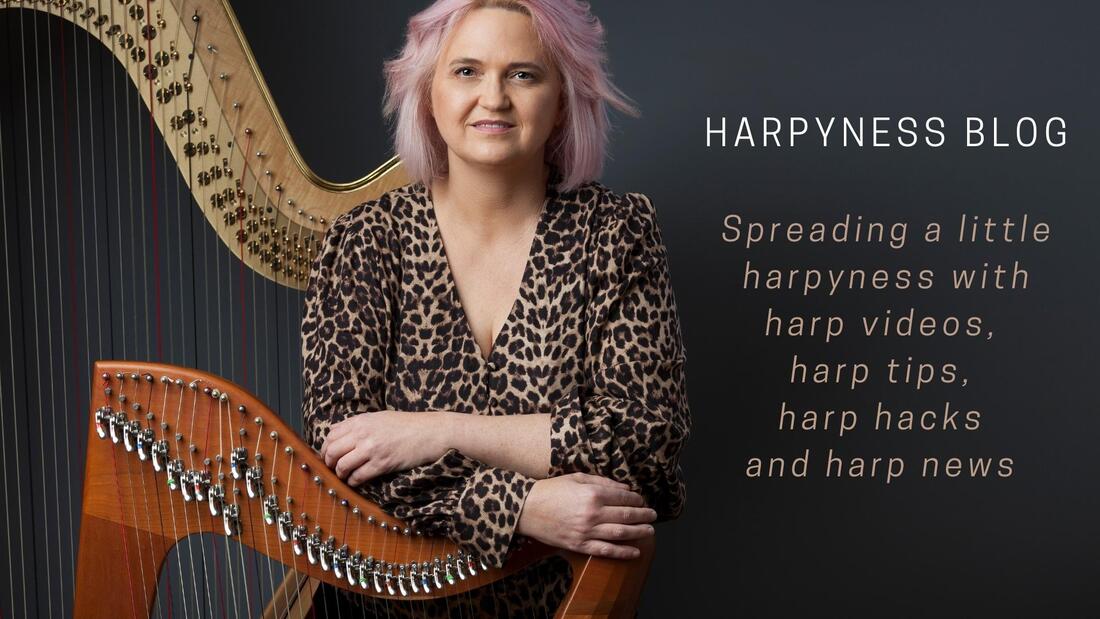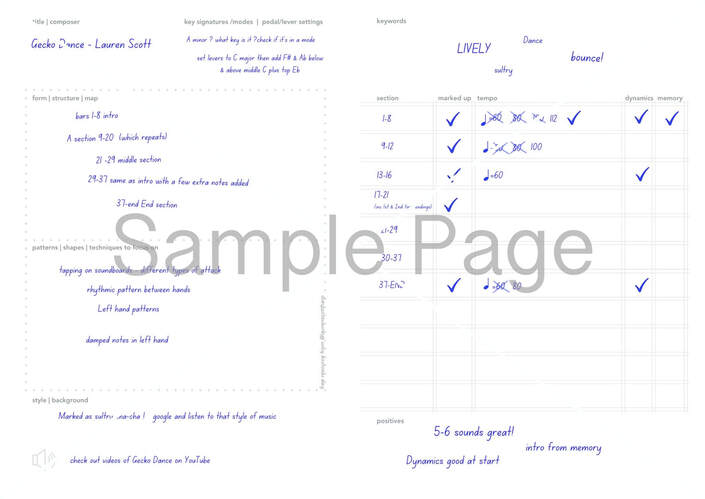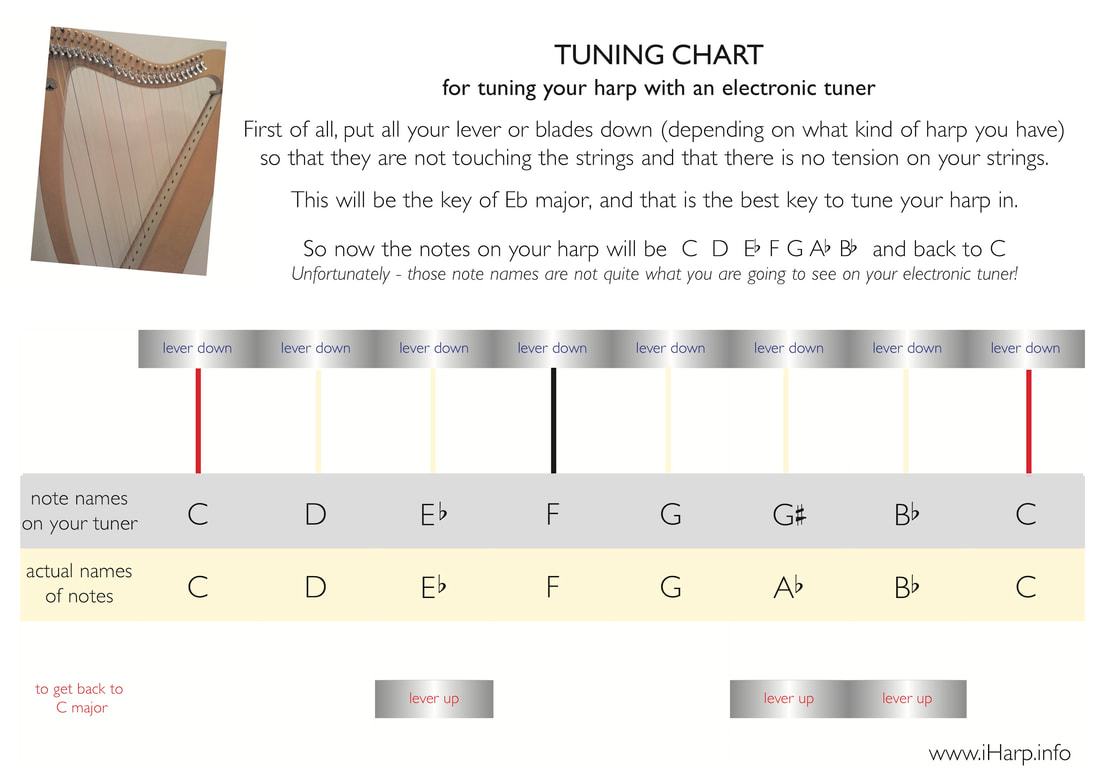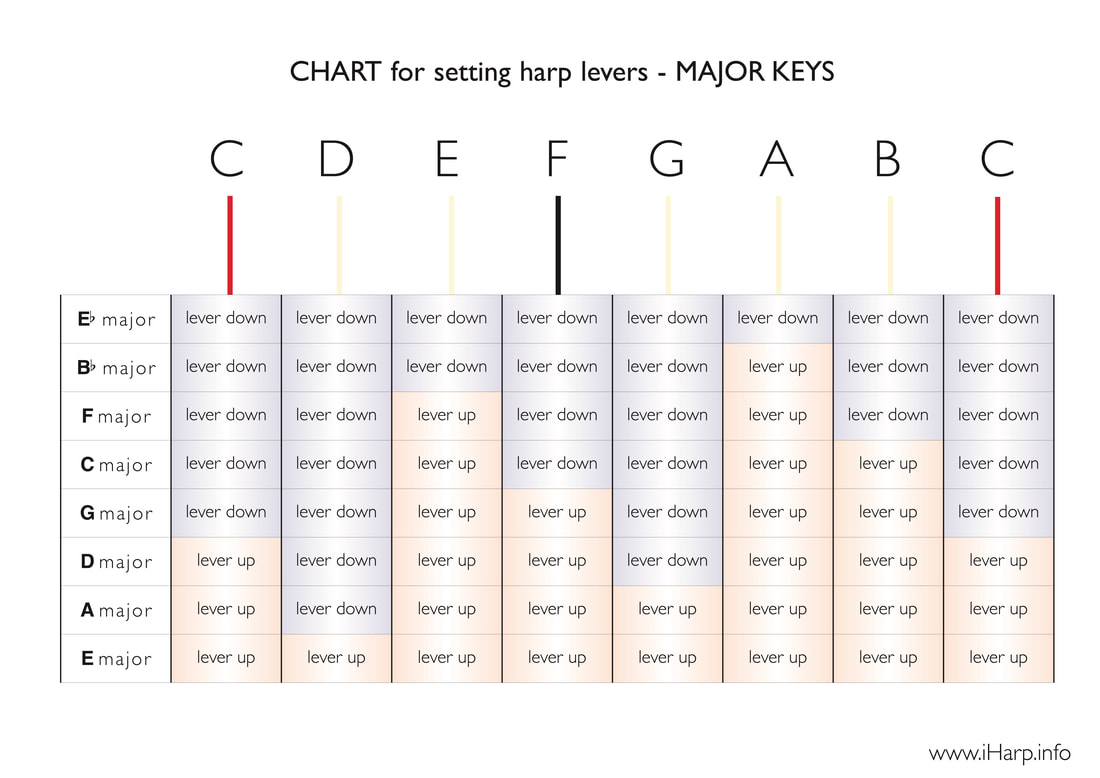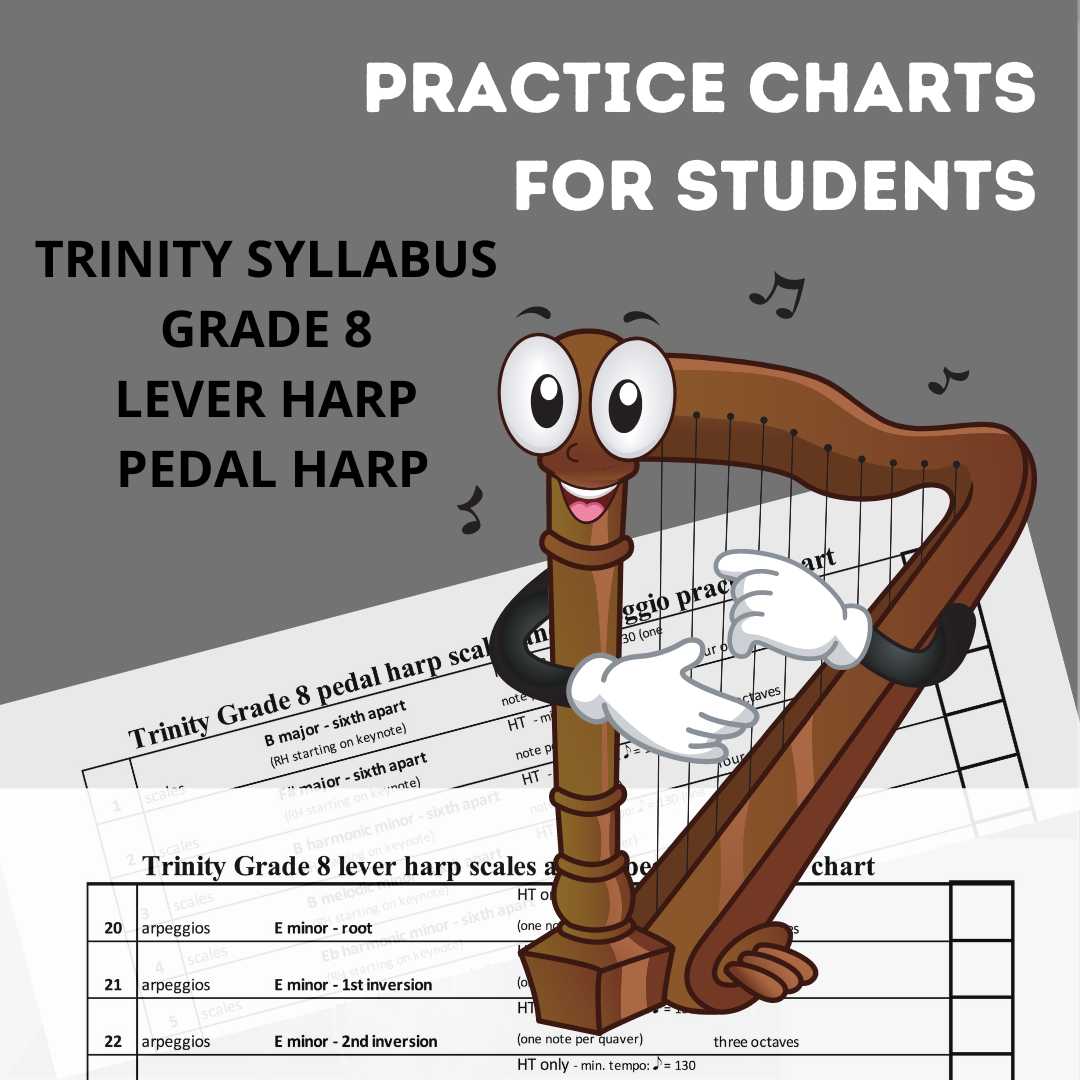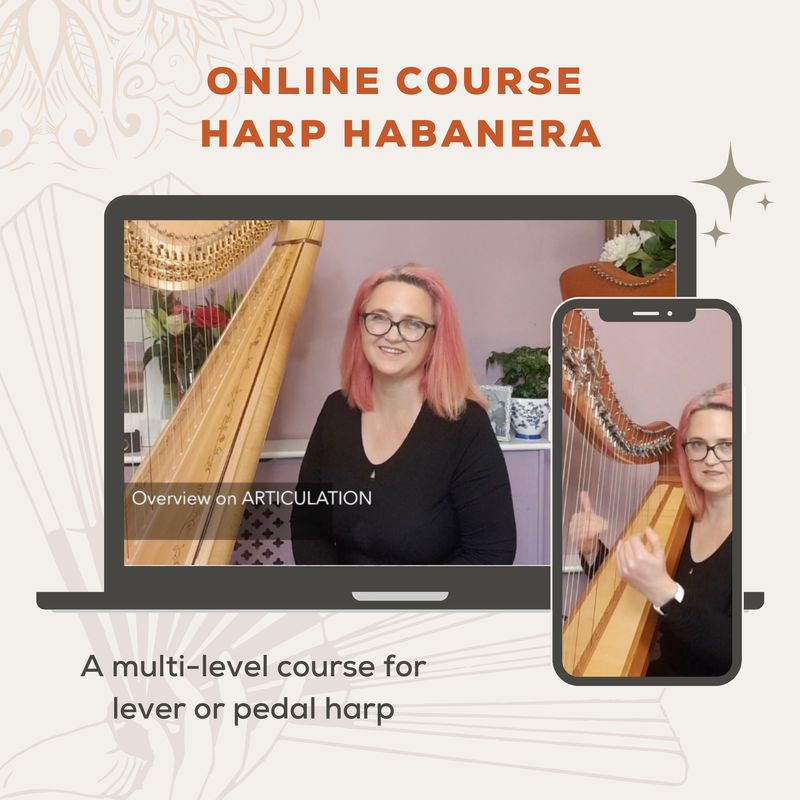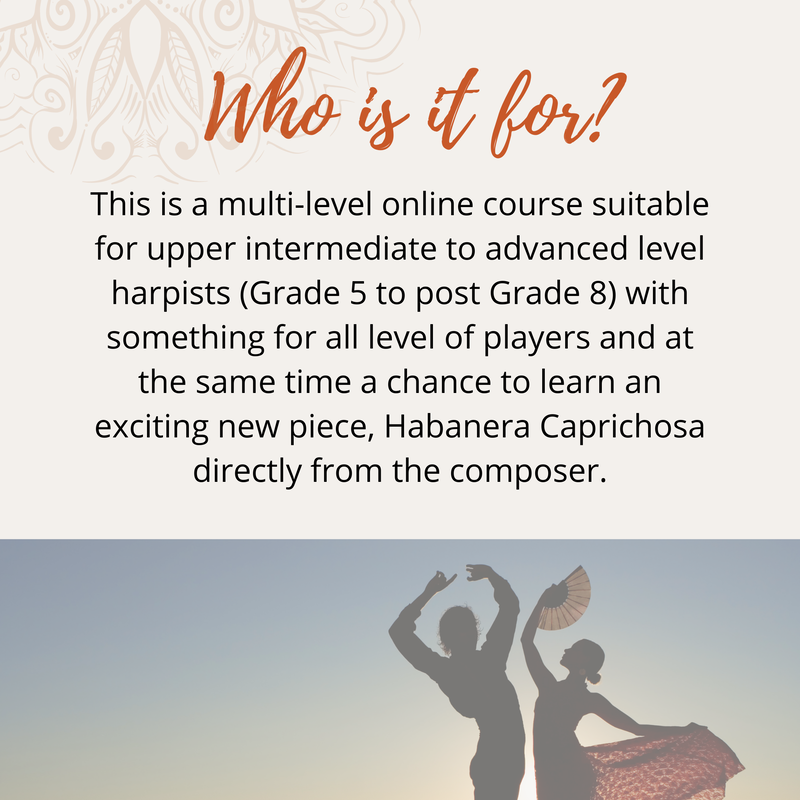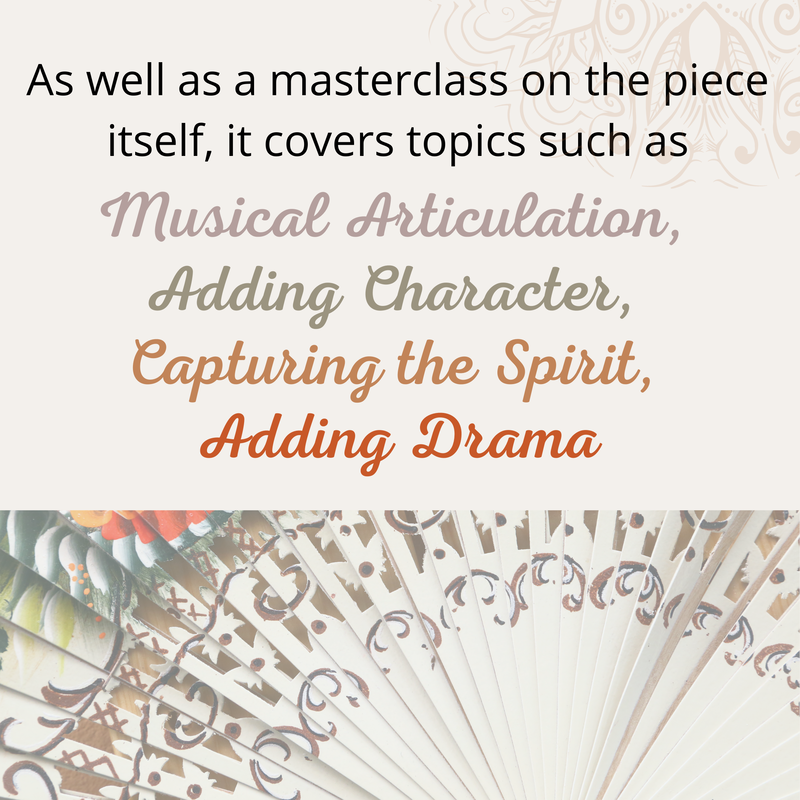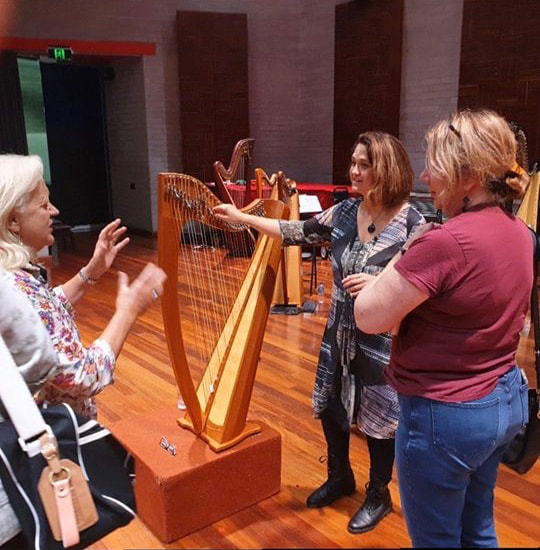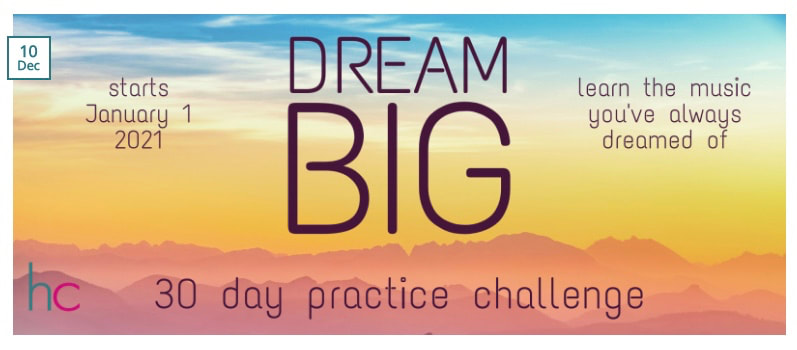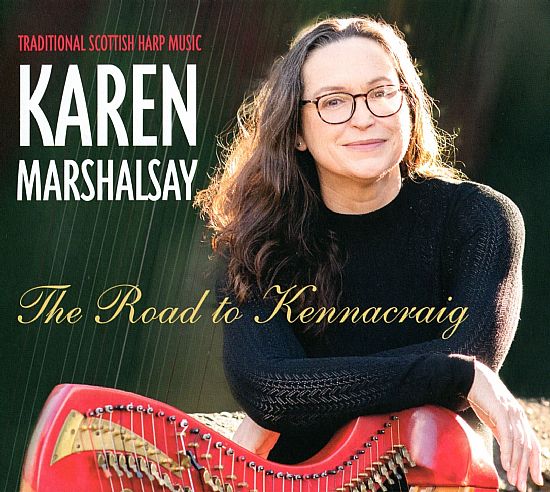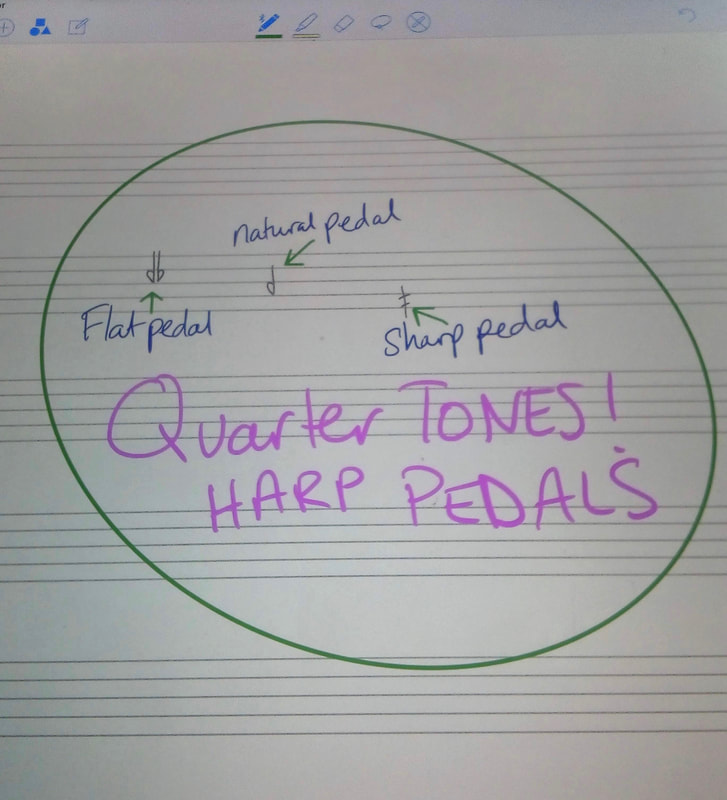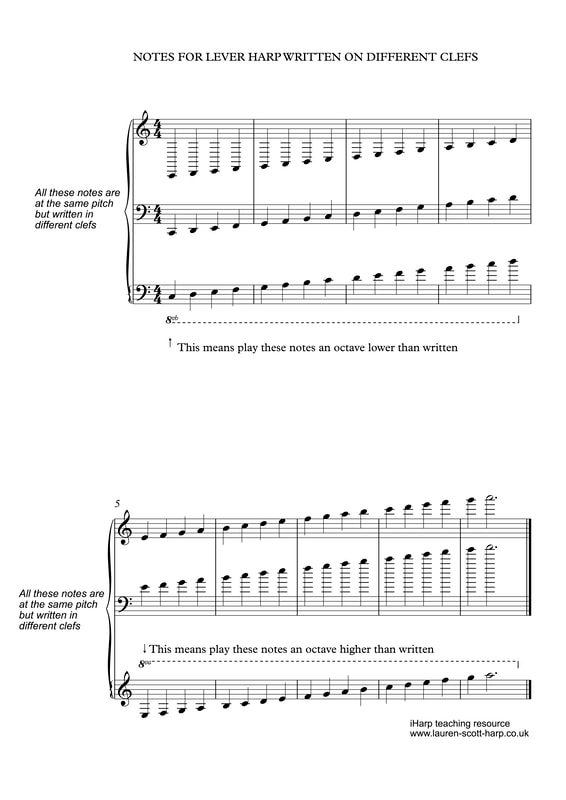|
Inspired by bio-luminescent plankton that glow in the dark, flashing arpeggio figures, the hum of rapid harmonics and a variety of extended techniques evoke this most magical of phenomena to scintillating effect. Sea of Stars was written in January 2020 and premiered by Lauren Scott and Eleanor Turner in an online performance in October 2020. Originally written for lever harp & pedal harp duo, I have subsequently arranged this piece for harp quartet. The quartet version can be played on 4 pedal harps or mixture of lever & pedal harps. Video of how to play the extended techniques in Sea of Stars
0 Comments
I've recently created some practice templates which are available for free from my online shop on this website. It's a learning resource suitable for all musicians (not just harpists) and for any level of player. As such i've created 2 versions, 1 for harpists and a general one for non-harpists. Here is a mock "filled in" version which hopefully gives an idea of how you can use them I'd love you to have a go and see how you get on using them. Please do let me know if you find them useful !
There's more information on how to use them in my web shop. link below Initial set up with your harp Tip 1. Are you sitting correctly?This may sound obvious, but it's important to sit so that YOU are comfortable with no twisting or bending of your spine and that you adjust the harp to you. Rather than you adjusting your body to the harp. You should never be feeling uncomfortable when you play the harp. If you do have any aches - STOP! Put the harp down and check your posture.
Now that you are centred, move the harp back towards your shoulder so that it 'fits' you in this balanced position. You might need to put the legs of your harp away from you a little bit . You also might need to twist the angle of the harp a little bit so that it's not 'square' on to you, but more 10 degrees to the left. The harp when it tilts back towards you is aiming towards your right shoulder and not your head! Tip 2. How to tune your harpTo get the most out of your lever harp, you want to be able to play in as many keys as possible. Tuning in Eb major gives you the most useful range of keys. With all levers down the harp needs to be tuned into Eb major. If you don't already have one, get yourself an electronic tuner. They are very cheap to buy and you can also get an app to download to your phone. Check this chart when you first start to tune to check you know which notes you are looking for on your tuner - Ab will show up as G sharp on the tuner!
Top Tip 3. Setting the leversYou 'base' key that you are going to set your harp in the most will be C major, so you need to get used to setting it quickly to that key.
Levers work by engaging with the string to make the string shorter in length and thereby sharper. When the lever is off there is no engagement with the string and the string is at it's maximum length. However, the mechanics of the levers can differ according to the make and age of the harp. Some levers go up and down, some twist from side to side. Some will sharpen a string by going up, and some do the reverse. To make it easier the charts below are colour coded red and blue. red = hotter = lever on = sharp blue = colder = lever off = flat On your particular harp to get a sharp may be lever up or lever down! The majority of harps are levers up for sharp, but get to know what it is for you. Until you know and remember all the other key signatures, when you look at a new piece of music, check the key signature at the start and do whatever it says - from your base key setting of C major. so if it's a piece with sharp signs - you set to C major, and if it has one sharp in the key signature (G major) then you put your F levers on. If it's a piece with 2 flats in the key signature (Bb major) then you take the B & E levers off from your base key of C major. It won't take long to get used to the levers! When you aren't playing your harp, put all the levers back into neutral position of all levers off which is Eb major Don't worry it takes a while to understand at first, but it won't be long until it all makes sense and you are flipping levers like a pro! I've been buying my harp strings from Mark Norris for a while now https://www.harpstrings.biz/ and I recently have been chatting to him online about the possibly of adapting some strings to make them suitable for a blind harpist friend of mine. One thing led to another and I told Mark about my own customised string set up and that the intonation of my levers left a little to be desired. I was a bit nervous about telling a harp maker how I had dived in and started customising and playing around with a harp set-up, but he was extremely generous and said that he would have a good look at my harp and fix my levers so that it would be properly in tune! I know Mark doesn't normally look at other makes of harps apart from his own, so it was an extremely generous offer from him. So this meant a long drive to his studio in Scotland which was 8 hours of driving in total there and back from my home. But I took lots of breaks and what a splendid drive it was. I had to stop to take a picture of the view near to his studio. I have to admit to being a complete harp nerd, and visiting a harp makers studio is heaven for me! Absolutely amazing to see a craftsman at work and to see harps in various stages of being built. Whilst I was there Mark showed me a new project of his called Nifty Harps, and they are absolutely fab. He's developing a professional model and I can't wait to order a 27 string one next year. They are affordable harps with a really good sound and have a wrap around detached soundboard. Think along the lines of cardboard harps, but made with rolled wood. An absolutely brilliant project https://niftyharps.scot/ Mark was fitting a string whilst we were chatting and I couldn't believe the speed he went at. So here he is demonstrating tying the perfect harp knot slowly for me, and it's still so quick! Amazing! And to top it all off, Mark fixed the intonation on my harp.
Thank you Mark! We are nearly there with a possible solution on the strings for blind harpists, and I'll post about that another time
My latest ensemble piece written for Harps North West is a multi-level 3 part ensemble called Carousel of Dreams. Inspired by Japanese Anime films from Studio Ghibli, the piece has a dreamy, fantasy like quality.
HARP NORTH WEST MEMBERS
Below are slower practice versions of the 3 sections, each with a count in. Please contact Gill at Harps North West for the sheet music.
Finally, this is the whole piece at the slower tempo with click added
***Practice charts for all the Grades now available HERE*** Here is a free teaching resource which I have done and you are very welcome to use with your students if it's helpful to you. Practice charts for all the scales and arpeggios in the Trinity exams harp syllabus for Grade 8 for both LEVER and PEDAL harps. Every single permutation of scale and arpeggio is listed which makes it much easier for students to get through absolutely every scale and arpeggio they need to practice for their exam. If they aim to do at least 5 different scales/arpeggios each practice session and tick them off as they do them it won't take them for them to get through them all. I encourage my students to select across different keys and types of scales/arpeggios to complete the cycle rather then going through it in sequential order, but whatever works best for everyone; they are all there. Hope these are helpful! GRADE 8 Lever harp scales and arpeggio practice charts TRINITY Syllabus
GRADE 8 Pedal harp scales and arpeggio practice charts TRINITY Syllabus
This is a free resource for the harp community, but if you'd like to buy me a virtual coffee that would be very welcome!
Introduction to note bending techniques used in my compositions, Beyond the Horizon & Celestial Spirals Written in 2019, Beyond the Horizon and Celestial Spirals share the same 3 note motif and can be played together as a two movement work or individually. Both pieces explore an ethereal ‘out of this world’ soundscape and feature on Lauren Scott’s debut album, ‘Beyond the Horizon’ - New Music for Lever Harp (AVIE2417). Written for lever harp, they can also be played on pedal harp with some adaptation by the player. Beyond the Horizon features various note bending techniques developed by Lauren to evoke the feelings of floating beyond the atmosphere. Celestial Spirals features a buzzing sound from having a paperclip resting at the base of just one string to create an alternative sound world which underlines the spirals that flow through the piece before coming back to it’s original starting point. Here on this page, Lauren demonstrates the various techniques and shows how they can be achieved on different types of harps. A run through of all the different effects in Beyond the Horizon. A run through of all the special effects during first 4 measures of Celestial Spirals. Using the paperclip in Celestial Spirals. Playing the different effects in context within Celestial Spirals. Demonstrating the different effects in Beyond the Horizon on a heavy gauge string lever harp. Demonstrating the different effects in Beyond the Horizon on a concert harp. Beyond the Horizon and Celestial Spirals is now published as sheet music and available HERE I hope you enjoy learning the music and if you post any performances online of my music please tag me in as I would love to see them! @laurenscottharp
I am very humbled that several of my compositions have been selected onto the new AMEB harp syllabus. My thanks go to Alice Giles who oversaw the selection of the new harp syllabus for the Australian Music Examinations Board and to the harpists I have met in West Australia who have been so supportive. The pieces that have been selected are: Gypsy Dance - (Certificate of Performance Lever Harp) AMEB 2021 Lapkon's Spinning Wheel - (Grade 7) on AMEB Harp Syllabus 2021 Caribbean Daydreams - (Grade 5) on AMEB Harp Syllabus 2021 Habanera Caprichosa - (Grade 8) on AMEB Harp Syllabus 2021 I was hoping to travel to my birth country last year but covid had other ideas, and it seems that a return to Australia will of course be some way off now. So to celebrate Habanera Caprichosa being selected as a Grade 8 AMEB piece I have created an on demand video tutorial. International travel seems a long distance memory now post covid, but I continue to hope that I will get a chance to return to Australia soon! Harp Habanera online course is available HERE
I'm absolutely thrilled that my composition Elegy has been selected as one of Harp Columns 30 day practice challenges as a DREAM BIG Original solo for lever harp.
In this blog post I have created a series of mini tutorials which I hope will be a useful aid for anyone taking on the challenge of learning Elegy as part of the Harp Column practice challenge.
Here is the audio of Elegy and the PDF of the sheet music can be downloaded from Harp Column HERE
Elegy breaks down into 7 sections and I have created a mini tutorial covering each section of the piece.
This first video is an over view on creating the VIBRATO effect which occurs throughout the piece 1st section - m.1-162nd section - m.17-243rd section - m. 25-364th section - m.37-405th section - m. 41-486th section - m.49-567th section - m. 57-end
I hope these are helpful, and thank you so much for learning my music. If you post any videos on social media please tag me in as I would love to see them! x
@laurenscottharp In this very short video I demonstrate how to play an effect which I've developed and use in my piece Celestial Spirals. I've called them xylo-harmonics, but essentially they are false harmonics, and it's a handy technique to have 'up your sleeve' if you ever have a problematic string which has a stubborn harmonic and you want to produce a pure harmonic sound. Here, you can see how they are used in context in the opening and closing sections of Celestial Spirals. I find you can also have more control over dynamics using this effect than you can with harmonics.
This CD by Scottish harpist and composer Karen Marshalsay is a firm favourite of mine and gets regularly played in my car when I'm driving.
I absolutely love everything about this CD... the sound of the three different harps she plays, the music and the ornamentation is really quite extraordinary. She has a tutor book you can buy to study the different techniques she uses HERE
I find the sound of the wire harp completely enchanting and etheral, and the sound of the bray harp is just bonkers! I'd personally love to get hold of a bray harp at some point to have a play around on, it is just the craziest sounding thing ever - I love it.
Back to Karen's CD - this is a GREAT CD. It's available on spotify etc, but I always recommend to support the artist and buy the CDs direct from the artists whenever possible. so buy it HERE Brilliant harping, fantastic use of ornamentation, great compositions - bravo Karen!
I've recorded a couple of fun and easy to learn exercises for pedal harp that can be use as a daily warm up.
The first mini tutorial is called "let's get those feet moving!"
I play through the whole warm-up exercise on this IGTV post here
The harder version of that exercise is in a mini tutorial called, "One Step Beyond!", and the video for that is below...
I'm in the middle of learning a solo harp piece with lots of quarter tones. Despite having many years of experience of learning contemporary music, reading quartertones and knowing which pedal setting it refers to is not in a harpists natural comfort zone. So this chart is an AIDE MEMOIRE for me... not to confuse a quartertone natural symbol for a flat pedal when marking my pedals in the score.
Hopefully it might be helpful for other harpists working on contemporary music with quartertones? I've just done this chart for a pupil and posting it here in case it's useful for anyone else. It's tricky if you are new to learning to read music at the same time as learning to play the harp. Very easy to get confused when the left hand of the music jumps about between bass clef and treble clef and you are reading ledger lines. It can take a while to work out which octave a note is in! For those new to reading music and harp playing - harpists tend to only use 3-4 ledger lines maximum. Advanced players will read more ledger lines, but 3 is absolutely fine for beginners and intermediate harpists and there is no need to learn to read notes with more ledger lines than that. Composers - If a note needs more than 3 ledger lines than change to a different clef where there aren't any - or use the 8va or 8vb. If you can avoid using ledger lines by using the 8va or 8vb then it's good practice to do so. This chart has lots of ledger lines that we wouldn't normally use and are there just for note comparison. Hopefully this chart will help those new to the harp who are also learning to read music at the same time.
Having always tied my harp strings the same way for YEARS, I have very recently started doing them differently! I'm now using wooden dowels instead of a bit of thick harp gut to secure the knot, which meant learning a new way to tie the knot. Like Pavlov's dog, it's going to take me a while to unlearn a lifetime of tying a knot a different way!
But this new way is a simpler way (I think) of doing it, and for someone like myself who is a little bit dyslexic at times this is quick and works first time without being too 'fiddly' to remember. Loop under - tail over the bottom end of the loop - tail now wraps into the loop - wooden dowel at bottom end of the loop - grab hold of dowel and the tail - pull |
Categories
All
AuthorLauren Scott is a harpist & composer and has been blogging on Harpyness for over 10 years. If you enjoy reading Harpyness and you'd like to buy me a virtual coffee that would be very welcome. Cheers!
Archives
June 2024
|
||||||||||||||||||||||||||||
